Al-Gaddafi International Prize for Human Rights
The Al-Gaddafi International Prize for Human Rights was an annual human rights prize founded by the Libyan People's Congress in late 1988, in "indebtedness and gratitude for Muammar Gaddafi and in appreciation for his role in firmly establishing the principle of direct democracy, his persistent struggle, his distinctive inspiration and continuous instigation for the consolidation of human liberty and for issuing the Great Green Document in the era of the masses, for the purpose of bestowing tribute upon symbolic figures of struggle and faith in the values of freedom to all humans, nations, groups and individuals".[1]
| Al-Gaddafi International Prize for Human Rights | |
|---|---|
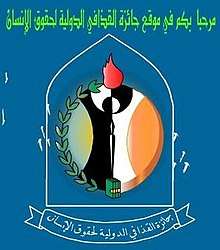 | |
| Awarded for | International personalities, bodies or organizations that have distinctively contributed to rendering an outstanding human service and has achieved great actions in defending Human rights, protecting the causes of freedom and supporting peace everywhere in the world. |
| Country | Libya |
| Presented by | International People's Committee for Gaddafi's International Prize for Human Rights |
| First awarded | 1989 |
| Last awarded | 2010 |
Gaddafi made an initial grant of ten million US$[2] to the Swiss-based foundation North-South XXI which later administered the prize donation. The sum of the prize money was US $250,000 (in case of several recipients the prize money was shared). The prize was given by an international committee, chaired by former President of Algeria Ahmed Ben Bella.[3][4] Gaddafi himself had no say in choosing the winner.[2]
The prize was discontinued in 2011, after Gaddafi's overthrow and death during the Libyan Civil War.
Criticism of the organization includes Swiss TV's report claiming that "the Gaddafi prize for Human Rights is an instrument for propaganda for the dictator...Numerous Holocaust deniers and despots are among the prize winners",[5] while other groups have said that it promotes "anti-American and anti-Western hatred".[6]
List of recipients
| Year | Recipient(s) | Portrait(s) |
|---|---|---|
| 1989 | Nelson Mandela[2][7] |  |
| 1990 | The children of Palestine[8] | |
| 1991 | The indigenous peoples of the Americas |  |
| 1992 | The African Centre for Combating AIDS | |
| 1993 | The children of Bosnia and Herzegovina[8] | |
| 1994 | The Union of Human Rights Societies and Peoples in Africa | |
| 1995 | Ahmed Ben Bella, Francisco da Costa Gomes | 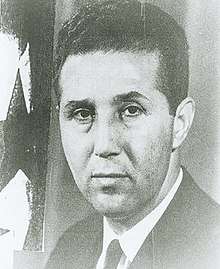 |
| 1996 | Louis Farrakhan[7] | 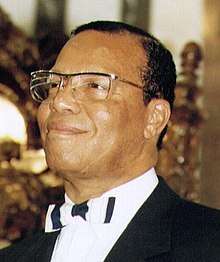 |
| 1997 | Gracelyn Smallwood, Melchior Ndadaye, Melba Hernandez, Manal Younes Abdul-Razzak, Doreen McNally | |
| 1998 | Fidel Castro[7] | 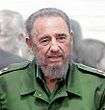 |
| 1999 | The children of Iraq[9] | |
| 2000 | Souha Bechara, Joseph Ki-Zerbo, Evo Morales,[10] the Movement of September, the Third World Center | |
| 2002 | Mamadou N'Diaye, Roger Garaudy,[9] Ibrahim Al-Koni, Jean Ziegler (who claimed to have turned the award down but was later found to have accepted it),[11][12] Nadeem Albetar, Ali M. Almosrati, Khaifa M. Attelisie, Mohamed A. Alsherif, Ali Fahmi Khshiem, Rajab Muftah Abodabos, Mohamed Moftah Elfitori, Ali Sodgy Abdulgader, Ahmed Ibrahim Elfagieh | |
| 2003 | Pope Shenouda III of Alexandria[13] | .jpg) |
| 2004 | Hugo Chávez[7] | 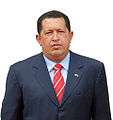 |
| 2005 | Mahathir bin Mohamad[14] | 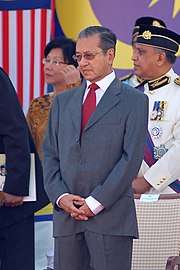 |
| 2006 | Evo Morales[15] | 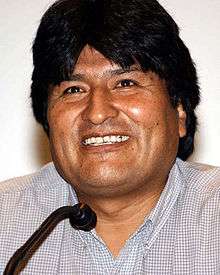 |
| 2007 | Libraries of Timbuktu[8] | |
| 2008 | Dom Mintoff[4] | .jpg) |
| 2009 | Daniel Ortega[16] | 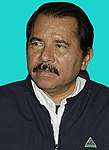 |
| 2010 | Recep Tayyip Erdoğan[17] |
Postage stamps issue
The Libyan state-owned General Posts and Telecommunications Company (GPTC) dedicated a postage stamps issue to Ghadafi Prize for Human Rights in 1994 (date of issue December 31). The issue consists of a minisheet with sixteen stamps.
Each horizontal strip of four stamps is dedicated to a particular subject:
References
- About us Web.archive.org. Archived from the original on 20 February 2011.
- "Prizes: And the Winner Is..." Time. 1989-05-08. Retrieved 2012-10-24.
- Chairman of the International Committee for the Gadhafi International Human Rights Prize 2004, former Algerian President Ahmed Ben Bella, left, shakes hands with Venezuelan President Hugo Chavez during his awarding ceremony of the 'Gadhafi International Human Rights Prize 2004' in Tripoli, Libya. Tributes.com
- Massa, Ariadne (26 October 2008). "KMB picks up Gaddafi prize for Mintoff". The Times. Retrieved 22 August 2009.
- "UN rights official Jean Ziegler created "Qaddafi Prize", reports Swiss TV". YouTube. Retrieved 19 October 2013.
- "Rights Agency Gives Podium to "Gaddafi Prize" Front Group". Scoop (website). 6 December 2011. Retrieved 19 October 2013.
- Bill Chappell (2011-03-01). "The Gadhafi Prize For Human Rights: In Its Final Year?". NPR. Retrieved 2012-10-24.
- Achy Obejas (22 August 2011). "Remember the Gadhafi International Prize for Human Rights?". WBEZ. Archived from the original on 29 May 2012. Retrieved 9 June 2013.
- Patrick Goodenough (6 December 2011). "U.N. Human Rights Chief Urged to Shun NGO Accused of Links to Gaddafi Regime". CNS News. Retrieved 9 June 2013.
- "Obama sollte Friedensnobelpreis aberkannt werden" (in German). Focus. 21 March 2011. Retrieved 9 June 2013.
- The nomination of Jean Ziegler to the Council of Human Rights is not unanimous
- "Swiss human rights campaigner turns down "Kadhafi" award", Agence France-Press, 1 October 2002.
- The Role of the Coptic Church in Africa African Perspectives, Volume 10 - Issue 36 – p. 65, 2012
- Rosyatimah Tukimin (1 December 2005). "Tun Dr Mahathir Receives Gaddafi International Prize". Bernama.com. Retrieved 9 June 2013.
- Joseph E Lovell (21 March 2011). "Nobel Committee asked to strip Obama of Peace Prize". Digital Journal. Retrieved 9 June 2013.
- Ramírez, Pedro Ortega (23 December 2009). "Daniel recibe premio de Derechos Humanos Gaddafi" (in Spanish). El 19. Retrieved 23 December 2009.
- "Turkish PM to receive Libyan rights award". Agence France-Presse. 26 November 2010. Retrieved 27 November 2010.